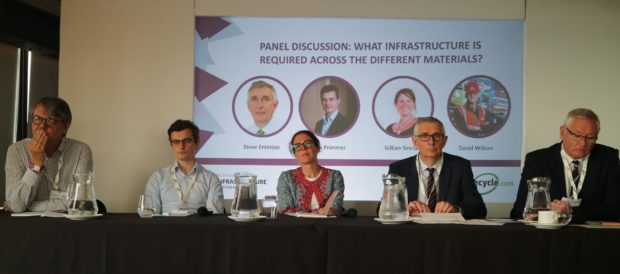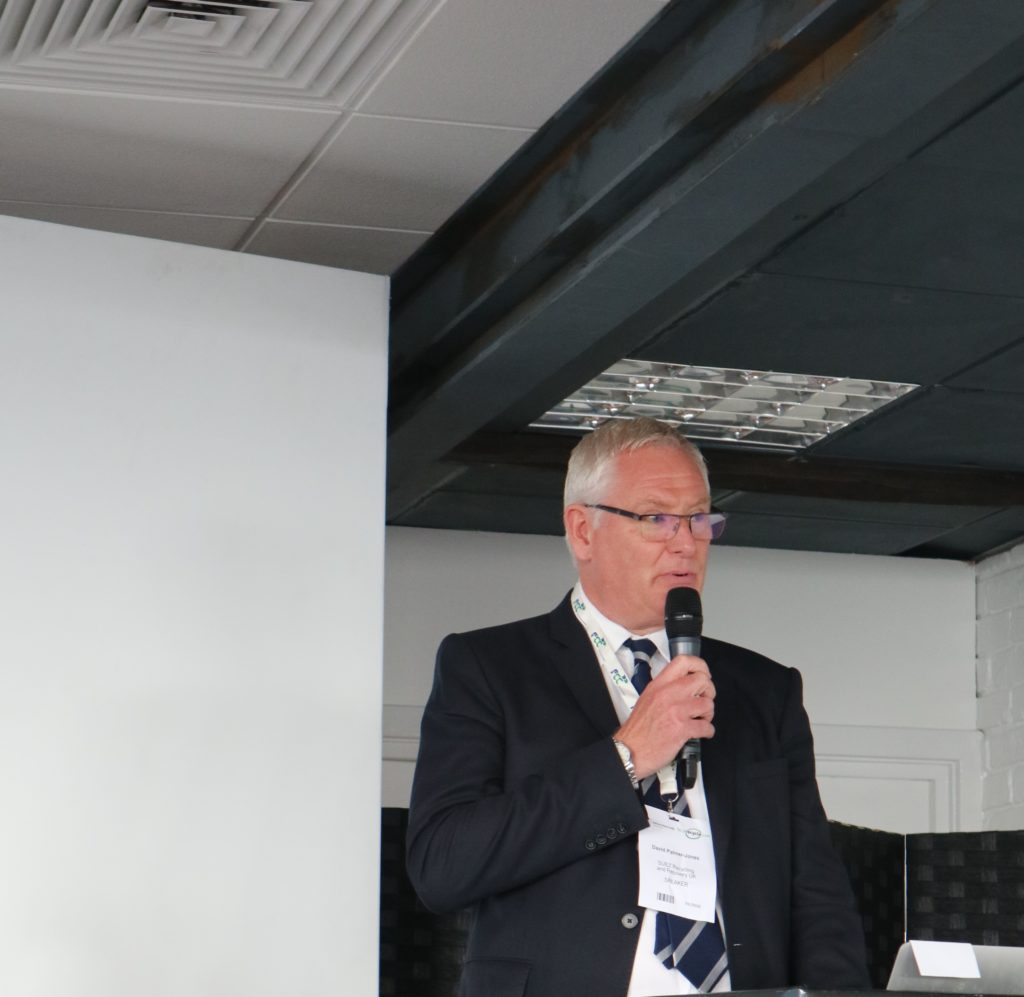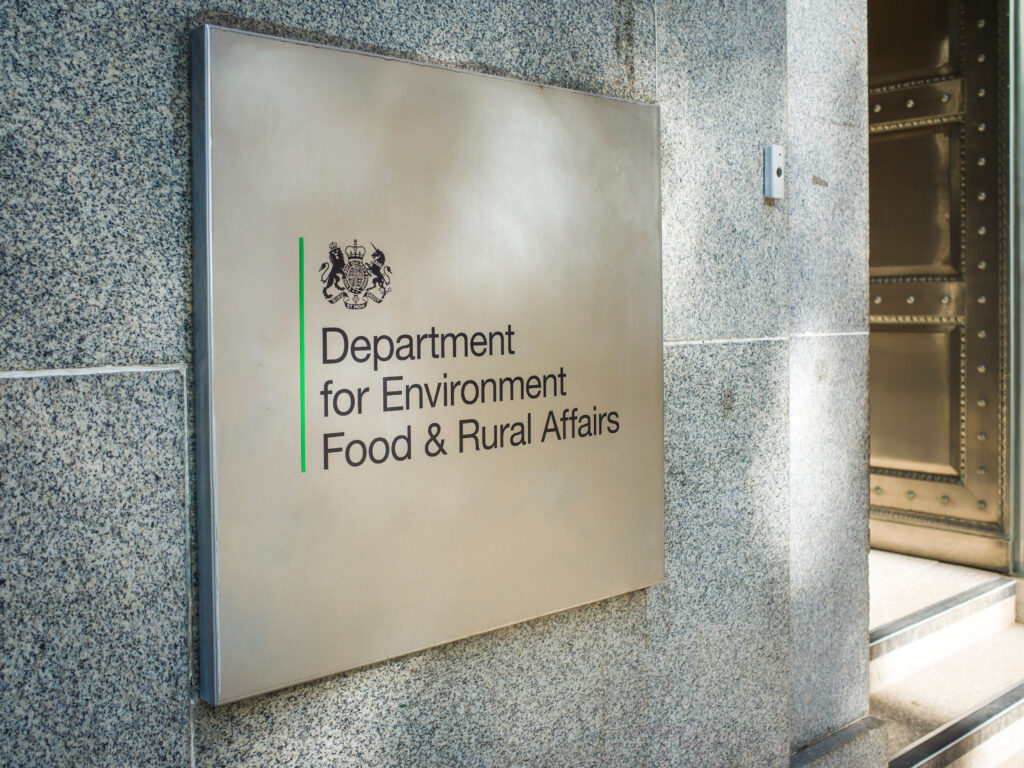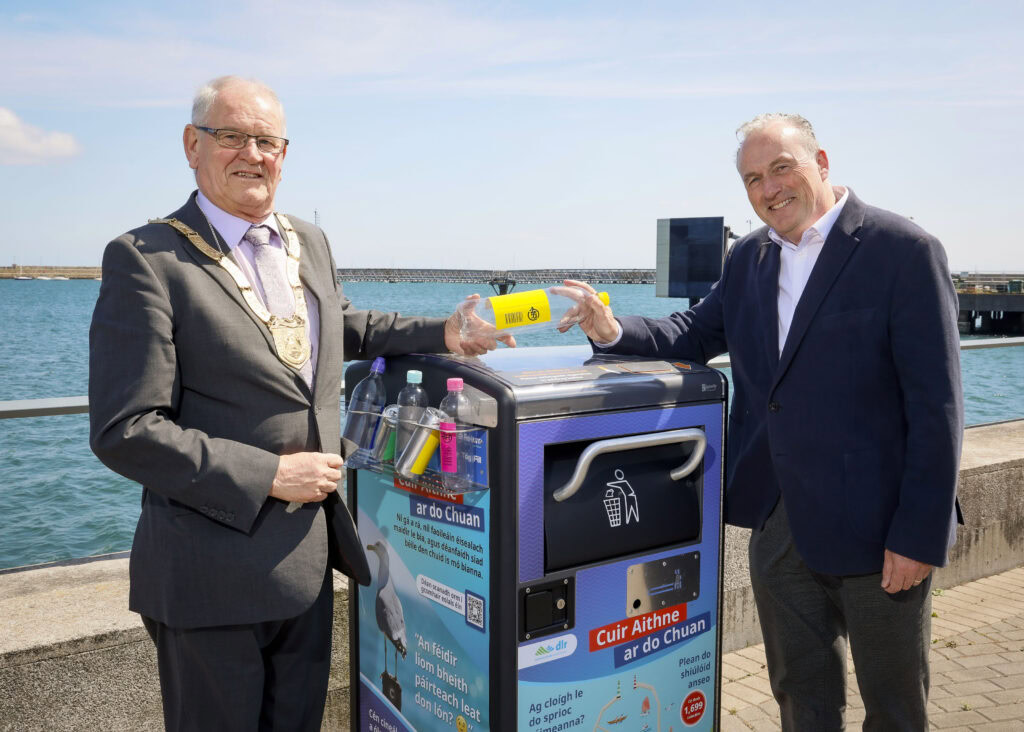Mr Palmer-Jones, the northern Europe group senior executive vice president at Suez Recycling and Recovery, was speaking at the Resource Infrastructure Conference this morning (9 September), organised by letsrecycle.com.
He explained that the EPR legislation framework as it stands provides a “great opportunity” for the industry to invest in recycling infrastructure, but suggested some payments should be brought forward to allow this to happen.
Mr Palmer-Jones said without this, there will be an “inertia”, where councils and waste management companies adopt a “wait and see response”, which could delay infrastructure investment.
We have to be careful about delaying EPR if we are to build the required infrastructure
– David Palmer-Jones, senior executive vice president, Suez
Opening the conference today, he said: “We have to be very careful about delaying this legislation if we are to build the required infrastructure to hit this 65% recycling target by 2035. We know Covid has happened, we know it’s a difficult time for business, but time is of the essence to make these changes.
“We haven’t had feedback from the second round of consultations yet. We are on the right track with this but the situation where the scheme administrator will hand out this £2.7 billion spoken about will be difficult to raise a bid for. You can’t bid for something which isn’t clear or yet formed.
“That allows a situation where we’re into 2022, the scheme administrator takes time to get going, then 2023 where we’re in a situation where already EPR should be coming into play. This is a very tall order. We need to get on with it to try and evolve it as we go. It won’t be perfect from day one”.
On the timescale, he added: “We have a very short period of time to make these changes. What you get is an inertia, where everybody sits and waits to see what this means for us with regards to payment mechanisms and contracts for example. Everyone will instead look to modify existing equipment in line with the needs of the new legislation before they use any capital to expand. People understand there is some capital to change and modify things in a way which allows us to continue to meet particular obligations.
“I think if we can bring forward some of these payments, it would provide much needed clarity and confidence to the industry”.
Inertia
The subject of inertia was raised later in the session during a panel discussion.
The panel discussion involved Nick Primmer, policy and market analyst at ADBA, Gillian Sinclair, head of development at FCC, David Wilson, managing director of Vanden Recycling and Mr Palmer Jones.

For the anaerobic digestion sector, Mr Primmer explained that there is a reluctance from government to invest in food waste processing facilities, if there is a risk of over-capacity if volumes decline.
“There is an additional question people use to delay AD plants is that there needs to be a reduction in food waste to start with. There is a fear, particularly in BEIS, that they don’t want a system where they incentivise the installation of new capacity, only for food waste to reduce, and then have over-capacity,” the ADBA market analyst explained.
He added: “What we say is we need food waste collections to be scaled up. We need to make sure that’s there even before 2023, we can then secure supply as early as possible and lead this through. But it’s difficult to ensure this supply and demand is matched, but again we are waiting”.
Plastics
Following on from Mr Primmer, was Vanden’s managing director Mr Wilson.
From the plastics perspective, he said delays come from fear over security of supply. He said when plastics recyclers plan for the future, the first question asked is regards to supply, which he doesn’t feel is guaranteed.
“It needs to be secure and regular. But the sheer decision to build recycling infrastructure and then get it done, it is easier with some materials which are easier to recycle. The difficult to recycle plastic is very different to make profitable”.
EfW
The situation was slightly different from the EfW perspective, Ms Sinclair from FCC explained.
She said the waste industry’s shift from landfill to EfW was proof that it can build the required infrastructure if the market allows.
Ms Sinclair said EfW will remain a “key part” of treating residual waste even if a recycling target is hit by 2035 or sooner.









Subscribe for free